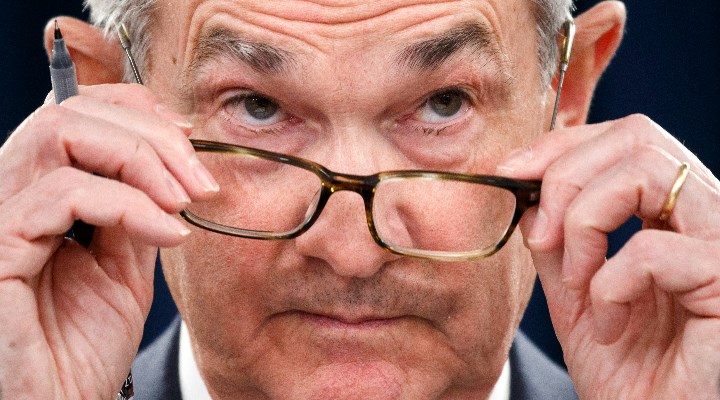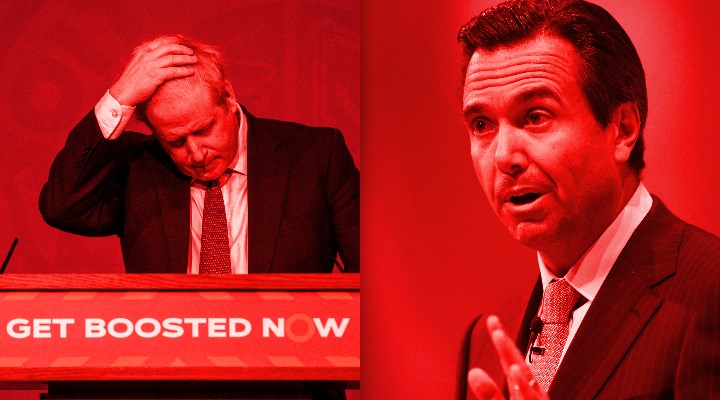
The arrival of inflation in 2021 sparked a debate over whether sustained price rises were a phenomenon here to stay, or just a “transitory” phase as western economies reacted to supply chain problems and government support for businesses being scaled back — and, in the case of the UK specifically — the disruption caused by Brexit.
It’s now looking like the US Federal Reserve may have made a bad call in initially declaring inflation to be a transitory phenomenon. Its chair Jerome Powell has even admitted the t-word should be retired.
It’s fair to say many people are no longer in the “transitory” camp — if they were ever in that group in the first place. Here’s a rundown of different takes on 2022’s most challenging economic issue.
The “It’s Here To Stay” Camp
Jerome Powell, Chairman, US Federal Reserve
It feels like a long time ago now, but back in November even Powell said the Fed would “retire” its use of the word “transitory” in favour of a nuanced explanation it hoped still manage to cut through the media noise.
“We tend to use [it] to mean that it won’t leave a permanent mark in the form of higher inflation,” he told Congress.
“I think it’s probably a good time to retire that word and try to explain more clearly what we mean.” Powell did still think at the time that inflation would fall closer to the Fed’s 2% target during 2022.
David Roberts, Head of Global Fixed Income, Liontrust
Let’s just say Liontrust’s David Roberts isn’t exactly a fan of Powell.
Commenting on rising US inflation figures last week, he took a dim view of the Fed chair's track record.
“Jay Powell spent a couple of hours chatting with US lawmakers this week. He reiterated his inflation-fighting credentials and noted that he was certain the Federal Reserve could control inflation and avoid damaging the US economy. And so far, the market has believed him,” he said.
“This is of course the same Chair Powell who told us a year ago inflation was “transitory” and oversaw the expansion of the Federal Reserve balance sheet to nearly $9 trillion. This is the same Chair Powell who tells us inflation will ebb as supply chain and labour market disruptions fade.
“Today US inflation hit 7%. The Fed will raise rates, and the Fed will reduce its balance sheet. Powell talks about avoiding ‘damage’ to the US economy. With consumer price rises running three and a half times faster than the Fed mandate, it is no longer about avoiding damage. Rather, it is now an exercise in damage limitation. Market reaction thus far? Nothing to see here....hear no evil, see no evil, speak no evil.”
Mohamed El-Erian, Chief Economic Advisor, Allianz
Allianz’s chief economic advisor Mohamed El-Erian didn’t mince his words either when he spoke to CNBC in mid-December, declaring that the interpretation of inflationary trends as transitory was an historically bad move by the US Federal Reserve.
“The characterization of inflation as transitory is probably the worst inflation call in the history of the Federal Reserve, and it results in a high probability of a policy mistake,” he said.
“If they catch up now, if they’re honest about their mistake and take steps now, they can still regain control of it.”
Gerard Lyons, Chief Economic Strategist, Netwealth
Wealth management service Netwealth chief economic strategist Gerard Lyons wrote in The Guardian last month that the Bank of England (BoE) had “badly misjudged” the persistence of inflation.
“Mistakenly, the Bank thought inflation would pass through quickly when it always looked likely to persist, as firms raise prices to maintain their margins in the face of rising costs and, as is persists, this leads inflation expectations to rise and people to seek higher wages,” he said.
The “It May Yet Be Transitory” Camp
Alan Blinder, Former Federal Reserve Vice Chairman and Professor of Economics
Though he admitted he never thought inflation would reach the levels it now has, in a Wall Street Journal article at the end of the year, economist Alan Blinder kept his colours pinned to the "transitory" mast.
“There is an inflationary price to pay when you catapult rapidly out of a pandemic-induced recession, and we are paying that price now. But it still looks transitory to me—though that doesn’t mean it will be over in a month or two. It won’t, which is presumably why Federal Reserve Chairman Jerome Powell recently stopped using the word,” he said.
“Several factors point to lower inflation rates ahead. First, the price of crude oil, which more than doubled between November 2020 and October 2021, has begun to fall. Second, normal consumption patterns will re-emerge as pandemic fears subside. Consumers will start buying more restaurant meals, hotel rooms and movie tickets — and fewer things that are shipped in boxes."
He added (in quite an Adam Smith way) that self-interest would solve any inflationary issues in the long term, as people would see shortages as an opportunity.
“Omicron may delay the return to normalcy, but it will happen. Third, capitalism is on our side. Shortages raise prices, but high prices create opportunities for profit, which attract capitalists to alleviate the shortages. They don’t do this out of altruism, but out of self-interest.”
Laith Khalaf, Head of Investment Analysis, AJ Bell
As we mulled likely events for 2022 during our special Outlook Week at Morningstar in early December, AJ Bell’s head of investment analysis Laith Khalaf was still willing to entertain the possibility that inflation might be short-lived.
“The Bank of England takes its fair share of stick for interest rate decisions, and that’s probably been exacerbated by the former governor Mark Carney’s unreliable boyfriend act, and the more recent comments by the current chief Andrew Bailey, which prompted markets to bet heavily on a November rate rise,” he said.
“However, the Bank’s analysis shouldn’t be dismissed lightly, given the resources and expertise they dedicate to forecasting inflation. That doesn’t mean we have to blindly accept their judgement that inflation is transitory, but we should give it proper weight.”




























